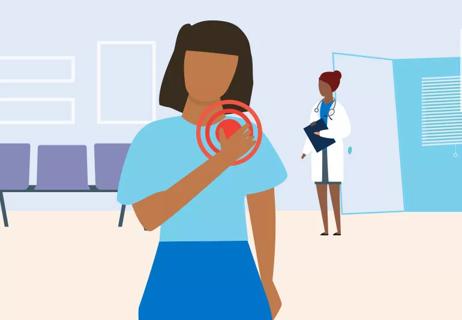Why pills aren't a substitute for food

To keep bones and joints as strong and healthy as possible, we know that our bodies need certain nutrients. Why not get them by taking supplements? Or, cover all the nutrient bases by taking a daily multivitamin?
Advertisement
Cleveland Clinic is a non-profit academic medical center. Advertising on our site helps support our mission. We do not endorse non-Cleveland Clinic products or services. Policy
It’s not that simple. Even though vitamins, minerals and other nutrients can be isolated and put in pills, supplements shouldn’t be used as substitutes for food.
Whole foods contain multiple nutrients that work together synergistically with your body.
“I tell my patients to get their nutrients from food, meaning lots of vegetables and fruits in a variety of colors, healthy protein, whole grains, legumes, healthy fats and low fat dairy or dairy equivalents,” says dietitian Mira Ilic, RD, LD.
For optimal bone health, we need a combination of multiple nutrients, including:
Recommended calcium intake is 1,000 mg a day for men up to age 70 and women up to age 50 and 1,200 mg a day for women over age 50 and men over age 70.
“If you can’t get that much from food, try to get at least half,” says Ilic.
“When you get calcium from food, you get other nutrients as well,” she says. Milk and other dairy products have calcium, protein, magnesium, potassium, vitamin A, B vitamins and other nutrients. There are nondairy sources of calcium as well, which also contain other important nutrients.
If you don’t get all your calcium from food, talk to your doctor about taking a supplement to make up the rest. Ilic suggests calcium citrate, which has better absorption. Keep in mind that your body doesn’t absorb more than 500 mg of calcium per couple hours, so space out your consumption (whether from food or supplements) throughout the day.
Advertisement
You may not get the recommended amount of vitamin D from food, but you can get it from exposure to the sun. Food sources include fortified dairy products and cold-water fish (such as salmon, mackerel, tuna and sardines). You need a supplement only if you’re deficient, which you can determine by getting a blood test.
Vitamin K is plentiful in leafy green vegetables. Magnesium is in lentils, chickpeas, whole grains and nuts.
When it comes to easing painful joints, it’s best to eat a variety of foods with possible anti-inflammatory properties. These include fruits, vegetables, whole grains and foods with omega-3 fatty acids.
Cold-water fish is a great source of omega-3s fatty acids. You can take a fish oil supplement. But it’s better to eat fish, which also contains protein, vitamin D and other nutrients. Protein helps build muscle. You need strong muscles for healthy bones and to support joints. If you eat sardines with bones you get the extra advantage of good dose of calcium.
“If you eat a balanced, healthy diet, you should be able to get all your nutrients from food,” says Ilic. There are certain groups of people who may not get enough of certain nutrients, and taking supplements is appropriate. These include people with absorption problems, pregnant women and people with a poor diet.
If you take a supplement, talk to your doctor first to make sure you are taking one that you need and that won’t adversely interact with any medications you take.
This article originally appeared in Cleveland Clinic Arthritis Advisor.
Advertisement
Learn more about our editorial process.
Advertisement

Plus, ways to keep your bones healthy and strong!

Bone health starts with proper nutrition, exercise and healthy lifestyle choices

It could be an injury, arthritis, a bone infection or even the position of your collarbone

Olive oil is high in heart-friendly unsaturated fats

The tropical fruit is a good source of antioxidants and vitamin C

Alternating between periods of eating and fasting may benefit your health

High amounts of cholesterol and saturated fat in red meat may be linked to heart disease

This plant-based eating plan focuses on lowering cholesterol, making it a great companion to the Mediterranean diet

Wearing a scarf, adjusting your outdoor activities and following your asthma treatment plan can help limit breathing problems

Your diet in the weeks, days and hours ahead of your race can power you to the finish line

When someone guilt trips you, they’re using emotionally manipulative behavior to try to get you to act a certain way